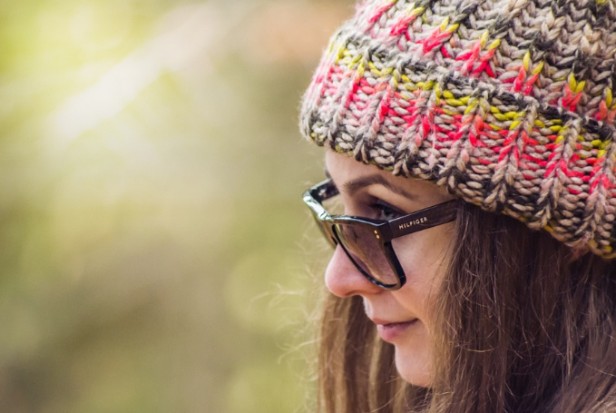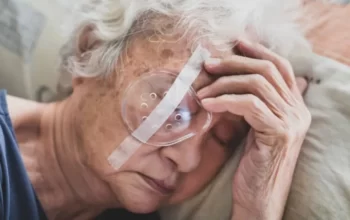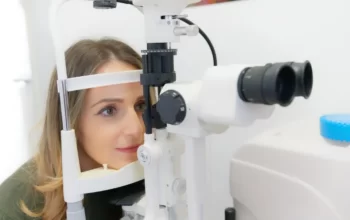
This article looks at potential causes, cures, and at-home remedies for dry eyes in the morning.
People who experience dry eyes in the morning may experience excessive watering, a burning or scratching sensation, blurred vision, or redness of the eyes. Dry eyes can be a wake-up problem due to medical conditions, poor tear quality, or no tear production.
Symptoms of Dry Eyes
A person with dry eyes upon waking may experience the following symptoms:
- Redness on the whites of the eye
- Stinging
- Burning sensations
- Scratching
- Sensitivity to light
- Blurring vision
- Stringy mucus near their eye
Nocturnal Lagophthalmos
People who have Nocturnal Lagophthalmos (NL) may awaken with dry eyes.
People with NL struggle to keep their eyelids closed while they sleep. As a result, the tear film, a liquid layer that covers the surface of the eye, may not function as it should.
A 2020 study discovered that NL may worsen the signs of dry eyes and impair sleep. One of the two muscles that keeps the eye open while awake, the Muller’s muscle, may become overstimulated, according to research, and lead to this condition.
The Muller’s muscle is activated by the sympathetic nervous system. The sympathetic nervous system acts as the “fight or flight” response in the body, sending extra blood supply to muscles to prepare for physical activity.
The study also identified shift work and being younger as risk factors for NL.
Tear Quality
People may experience dry eyes in the morning due to a decrease in tear quality.
Above each eye, the lacrimal glands play a role in tear production. Before draining out through the tear ducts in the corners of the eye, tears cover the surface of the eye to protect it and keep it lubricated.
Tears consist of three layers, which all help protect the front of the eye:
- Water layer: a layer that is the thickest and keeps the surface of the eye moist while helping to protect it from bacteria.
- Oil layer: The meibomian glands that cover the upper and lower eyelids secrete this layer. The oil layer keeps tears smooth so that the eye can see clearly through them and helps stop the water layer from evaporating.
- Mucous layer: This layer is produced in part by goblet cells found in the conjunctiva, the transparent layer that covers the white of the eye. The layer keeps tears adherent to the surface of the eye and aids in spreading them evenly over the eye.
When one of these layers is compromised, the tears may evaporate too quickly or fail to evenly cover the eye’s surface, which can result in dry eyes.
Inadequate Tear Production
Dry eyes may result from inadequate tear production by the tear glands. Certain factors may reduce tear production, including:
- being over the age of 65 years, as tear production reduces as people age
- certain medical conditions, such as diabetes, thyroid conditions, or autoimmune conditions
- certain medications, such as antihistamines, decongestants, antidepressants, and blood pressure medications
- dry or windy environments, which can lead to quicker tear evaporation
- not blinking as much due to looking at a screen for long periods of time
- refractive eye surgery
- hormonal changes, such as menopause, pregnancy, or taking oral contraceptives
10 Common Causes of Morning Dry Eye
- Nocturnal Lagophthalmos
When your eyelids cannot completely close while you are sleeping, this condition is known as nocturnal lagophthalmos. It can be caused by:
- Incomplete lid closure
- Head or jaw trauma
- Bell’s palsy
- Insufficient Tear Production At Night
You might wake up with dry eyes if you don’t cry enough at night.
Insufficient tear production may be due to:
- Age
- Medical conditions such as rheumatoid arthritis or diabetes
- Medication side effects
- Environmental conditions
- Damaged eyelids or blepharitis
- Complications from eye surgery
- Thyroid-Related Eye Symptoms
Your ability to close your eyelids while sleeping may be affected by hyperthyroidism or other thyroid-related eye conditions. When you wake up, the symptoms of dry eyes are worse because this makes your tears evaporate.
- Medications
Dry eyes can be brought on by some drugs, whether they are prescribed or over-the-counter. These include:
- Antihistamines and Decongestants
- Chemotherapy Medications
- Antidepressants
- Acne Medications
- Aging
As was already mentioned, dry eye becomes more prevalent as you age. People over the age of 50 have a higher risk of developing dry eye because tear production decreases with aging.

- Computer Use Before Bedtime
Dry eyes are frequently caused by using a computer. Seeing a computer screen for an extended period of time causes you to blink less frequently, which is why. Your tears may evaporate more quickly as a result, which can cause dry eye.
- Vitamin A deficiency
The overall health of your eyes is supported by vitamin A. Vitamin A deficiency can cause dry eyes by interfering with your eyes’ ability to produce tears. If you are suffering from dry eye, try adding these foods into your diet:
- Eggs
- Carrots
- Fish
- Spinach
- Broccoli
- Bell peppers
- Autoimmune Conditions
The inability to produce enough tears, which results in dry eyes, is a common autoimmune condition. These autoimmune conditions may include:
- Arthritis
- Lupus
- Diabetes
- Sjögren’s syndrome
Treating the underlying condition may help reduce symptoms of dry eye if you suspect an autoimmune disorder is the source of your symptoms.
- Allergies
Additionally, allergies may cause dry eye syndrome. If you have seasonal allergies and wake up with dry eyes, your symptoms might go away once your allergies stop.
Anti-allergy eye drops may be helpful if you have additional allergies.
- Dehydration
Dehydration can occasionally cause dry eye. You can prevent dehydration and keep your eyes moist at night by making sure you consume the recommended amount of fluid during the day.
Treatment
A 2020 study found that applying an ophthalmic ointment prior to bedtime is the quickest and most efficient way to treat NL. To alleviate any dry eye symptoms, people can also use artificial tears.
The research also suggests the following treatments for NL:
- taping the eyelid closed during sleep
- using warm eye masks
- aromatherapy
- taking a warm bath
Performing relaxing activities, such as taking a warm bath, may help increase parasympathetic activity — which helps regulate the body’s “rest and digest function” — and decrease sympathetic activity before sleeping. Thus, the Muller’s muscle above the eyelid might not be stimulated as much. Using warm compresses could also help, which increases lipid secretion from the meibomian glands, according to an older studyTrusted Source.
People may use artificial tears to treat poor tear quality. People may discover that over-the-counter (OTC) artificial tears can help them treat dry eyes. Artificial tears free of preservatives are advised by the American Optometric Association (AOA) as they might irritate people less.
Treatments to increase tear production include:
- using artificial tears or eyedrops
- using prescription eyedrops, which help the eye create more tears
- taking an omega-3 fatty acid supplement
Tears can stay in the eye for a longer period of time with the aid of therapies that block tear ducts. The tear ducts can be blocked with punctal plugs, which are tiny silicone or gel plugs. People may undergo surgery in some circumstances to permanently block the tear ducts.
Home Remedies
People could treat dry eyes upon waking with the following home remedies:
- using a humidifier if they live in a dry environment
- using a high-quality air filter if they live in a city or area with high levels of air pollution
- limiting the use of fans or hair dryers, which can dry the eyes
- wearing wraparound sunglasses in wind or sun
- avoiding cigarette smoke, which can irritate and dry the eyes
- taking regular breaks and blink more often if looking at a screen for long periods
- using lubricating eye gels, which may temporarily blur vision, so a person should use this before sleeping or resting
- gently pressing a warm compress over closed eyes
- gently washing eyelids with warm water and mild soap before rinsing thoroughly
- drinking 8–10 glasses of water each day to stay well hydrated
Before bed, applying an ophthalmic ointment is usually an efficient way to treat NL.
The AOA states that OTC artificial tears can typically be used to treat mild cases of dry eyes.
Contacting a Doctor
People can consult a doctor if OTC medications and home remedies fail to effectively treat dry eyes.
To alleviate uncomfortable symptoms and avoid any detrimental effects on eye health or vision, a healthcare provider can treat dry eyes.
Summary
It’s possible for someone to wake up with dry eyes because of NL, poor tear quality, or insufficient tear production.
The cause of dry eyes will determine the appropriate medical treatment. To lessen or avoid symptoms, people can try a number of at-home remedies. They consist of applying eye drops, using a humidifier or warm compresses, and drinking a lot of water.
People can speak with their doctor to explore other appropriate treatment options if self-care measures are unsuccessful.
Frequently Asked Questions
What Should I Know About LASIK Surgery and Dry Eye?
Through corneal reshaping, LASIK surgery corrects vision. The superficial nerves of the eye may be harmed during this procedure, which involves making an incision. Because of this, it’s possible that the nerves in the eyes fail to detect dryness and fail to trigger the necessary tear secretion. Dry eyes may be the end result.
How to Treat Dry Eye Syndrome Naturally?
Eating oily fish, flaxseeds, and other foods high in Omega 3 fatty acids can stimulate oil production in the eyes, though nothing can replace the advice of your eye doctor. To clear the clogged meibomian glands, try placing warm compresses over your eyes and gently massaging your eyelids. Protective eyewear, such as wraparound eyeglasses, aids in obstructing irritants and maintaining lubrication. To add moisture to the air in your house, use a humidifier. Regularly applying eye drops can also aid in preventing your eyes from drying out.
Why Do I Struggle to Open My Eyes When I Wake Up
It could be argued that when the eyes dry out, mucus seals the lid margins shut, and air and fluid between the eyelids form a suction effect which leads to a mechanical inability to open the eyes on awakening from sleep.
Why I Wake Up With Dry Eyes and Mouth?
Check your sleeping area for drafts, fans, and other irritants that could be drying out your airways and eyes overnight. If you have allergies, take certain medications, or sleep with your mouth open, you might also experience dry eyes or mouth when you wake up.
Best Eye Drops for Dry Eyes in the Morning
- Systane Ultra Free of Preservatives
- Systane Complete Without Preservatives
- Soothe XP.
- HydraSense Night Therapy.
- Updating Optive Mega-3 Lubricant.
- Lens drops called Blink-N-Clean.
- Refresh Plus No Preservatives
- Dry eye intense drops from Optase.
Why Do My Eyes Burn and Water When I Wake Up
This terrible morning sensation can be caused by dry eye syndrome, an allergic reaction, blepharitis, pink eye, or even a foreign substance inside the eye.



